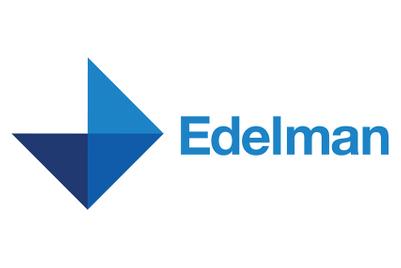
The United Nations has asked tech companies to consider moving to business models that don’t rely on programmatic advertising to help reduce the spread of misinformation, disinformation and hate speech.
Deemed “common sense” by Conscious Advertising Network co-founder Jake Dubbins, the call was one part of five Global Principles for Information Integrity, launched yesterday (24 June) by UN secretary general António Guterres.
“The UN’s call for tech companies to scope business models that do not rely on programmatic advertising or prioritise engagement over human rights, privacy and safety is something that speaks to common sense,” Dubbins told Campaign.
“Programmatic solutions have a place within advertising, as does the desire for engagement. But we cannot pursue those things headlong and without consideration for their negative impacts.”
The UN has proposed a shift away from programmatic as part of its “healthy incentives” principle, which seeks to address the “critical implications” resulting from current business models that depend on targeted ads as the dominant means of generating revenue.
Though the UN recognised such models have created unprecedented growth for the likes of Google and smaller businesses, it pointed to exploitation by political figures and private entities, adding: “These models have also enabled financial incentives and opportunities for purveyors of disinformation and hate, who exploit the attention economy.”
Dubbins added: “Transparency has long been absent in the programmatic supply chain despite the great work of the ANA and ISBA.
“It is high time that the industry redouble its efforts and designs a system that centres the human rights of our audiences and effectiveness for advertisers rather than the revenue of very few technology providers.”
The Association of National Advertisers Programmatic Supply Chain Study, released last December, found that only 36 cents in every dollar spent on programmatic reaches publishers—meaning marketers are missing out on $22bn in potential ad revenue.
Dubbins added: “The same ANA study found that the average advertising campaign is on 44,000 websites. One of the Conscious Advertising Network’s members discovered that their adverts were on 184,000 websites globally.
“How can advertisers guarantee that they are not funding misinformation or hate speech if they are not able to consistently audit the environments where their advertising appears?”
Rory Sutherland, vice-chairman of Ogilvy, is a known critic of programmatic advertising.
Speaking at The Podcast Show 2024 earlier this month, Sutherland called programmatic “a load of bollocks”.
Calling out the problems with measuring marketing activity on short-term interactions, he said: “It's the wrong match being used to optimise the wrong thing in the wrong time frame.”
The UN’s Global Principles for Information Integrity can be found in full here and cover:
-
Societal trust and resilience
-
Healthy incentives
-
Public empowerment
-
Independent, free and pluralistic media
-
Transparency and research
The aim of the principles, Guterras said, is “to empower people to demand their rights.
“At a time when billions of people are exposed to false narratives, distortions and lies, these principles lay out a clear path forward, firmly rooted in human rights, including the rights to freedom of expression and opinion."


.jpg&h=334&w=500&q=100&v=20250320&c=1)


.png&h=334&w=500&q=100&v=20250320&c=1)




.png&h=334&w=500&q=100&v=20250320&c=1)







.png&h=268&w=401&q=100&v=20250320&c=1)
.png&h=268&w=401&q=100&v=20250320&c=1)